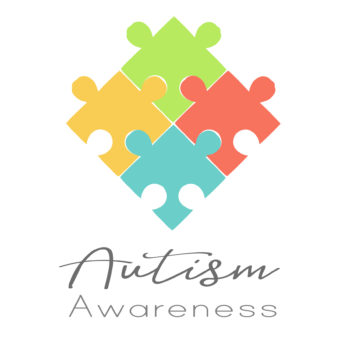Did you know: those with autism often have a lifetime depression rate nearly four times greater than that of the general population. With all the misconceptions about autism that are circling the internet, raising awareness and debunking these myths is a great way to advocate for autism. The following are common myths associated with autism spectrum disorder:
Myth #1: Autism is a disorder that can be cured with medication.
Fact: Autism spectrum disorder is a life-long neurodevelopmental disorder that impairs an individual’s ability to communicate and interact with others. Unfortunately, this disorder cannot be cured with medication. With the appropriate combination of therapy, intervention and education, individuals with autism can have the capacity to live fulfilling, productive and independent lives.
Myth #2: Individuals with autism do not want to make friends.
Individuals with autism have difficulty with social interactions because they struggle with communicating their feelings. Although they thrive for social interactions on the inside, they often come off as unfriendly or reluctant on the outside. These following behaviors that are associated with autism can often be confused with “not wanting to make friends”:
- Difficulty making eye contact
- Difficulty instinctively empathizing with others
- Resistance to physical contact
- Difficulty starting or maintaining a conversation
- Difficulty expressing emotions or feelings
Myth #3: Individuals with autism cannot feel or express emotion.
Individuals with autism struggle with interpreting others’ expressions because they may not be able to detect sadness or happiness based on body language. As a result, communication should be direct with individuals with autism. This does not mean that they do not still feel happiness, sadness, empathy or compassion. They have a different way of expressing and understanding these emotions.
Myth #4: Individuals with autism are intellectually disabled.
Many individuals with autism have normal to high IQs, and some may excel at math, music or another pursuit.
Myth #5: Autism only affects children.
Although autism is considered a childhood pervasive disorder since it is often diagnosed less than 12 years of age, children with autism grow up to be adults with autism.
Myth #6: The prevalence of autism has been increasing over recent years.
1 in 68 children are diagnosed with autism spectrum disorder. Although this number has been increasing dramatically over time, there is more awareness, education and resources available for health professionals, parents and educators. As a result of the increase in knowledge and resources, more individuals are now able to recognize the signs and symptoms associated with this disorder.
Myth #7: Vaccinations cause autism.
This has been a hot topic for a while; however, research has debunked this myth. Autism is caused by a collection of different gene abnormalities and irregularities in brain function and neurotransmitters. Risk factors associated with autism include obstetric complications, advanced paternal age and exposure to infections during pregnancy, particularly rubella.
Source: AutismSpeaks.org
If you or someone you know needs support, contact us at Discovery Mood & Anxiety today. We’re here to help.
Discovery Mood & Anxiety Program:
